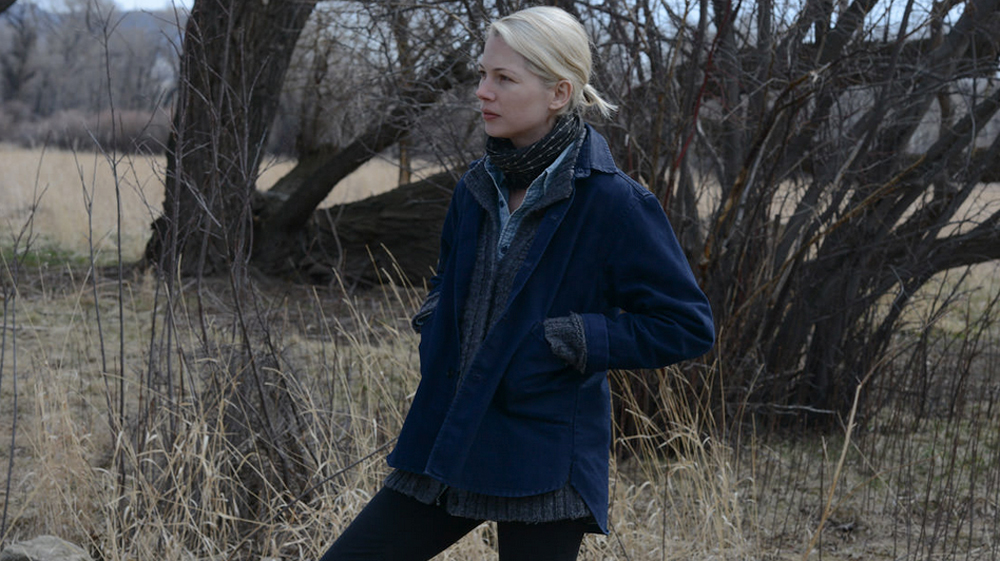Of the many fine qualities Kelly Reichardt has demonstrated over the years, one of the most overlooked has been how funny her films can be. As a keen an observer of human nature as they come, a sense of the occasional absurdity that sneaks into every person’s life has always found its way into her films, no matter how dire the situations her characters find themselves in. This gentle wit takes certain stage, at least as much as anything as anything can, in “Certain Women,” a triptych of loosely connected vignettes based on the short stories of the Montana-born writer Maile Meloy.
Isolation in the Midwest has bred an independence in the women of the title, but so has the disappointment in the men in their lives, leading to a trio of scenarios in which the desire to assert themselves collides with a patriarchal power structure that Reichardt finds pangs of biting humor in to go along with a sense of desperation. The most pronounced in this regard is upfront where Laura (Laura Dern), a personal injury lawyer tries to prevail on her client Fuller (Jared Harris) whose vision was compromised by an accident on the job that he will be unable to pursue further damages after taking a settlement, leading to frustration and possible danger when he takes a security guard in her office hostage. Then Reichardt cuts to Gina (Michelle Williams), a mother whose family is camping out in the woods while they build a home, with the hope to buy some sandstone from Albert (Rene Auberjonois), an elderly neighbor, and ends on Jamie (Lily Gladstone), a rancher who finds connection with Beth (Kristen Stewart), a law student who makes an arduous drive after her own studies are over to town to teach a night class on school law.
From the very first shot of the film after a beautiful tableau of the mountains that surround the town – as arresting a single frame as you’re likely to find – watching Laura and a lover recomposing themselves in separate rooms with the space between them feeling insurmountable, “Certain Women” constantly examines that distance between the genders, celebrating the strength of its heroines in all the small ways they have carved out a place in the world while showing the continual struggle just to keep it. Reichardt’s typical reserve keeps the film from ever feeling didactic, but it also makes every slight seem significant, whether it’s Laura’s attempt to reason with either Fuller or the sheriff who shows up to talk him off the ledge, the two men’s respective stubbornness and patronizing nonchalance feeling like distinctly male traits, the way Gina’s husband (James LeGros) undercuts her in bargaining for the sandstone with Albert, who barely looks her way during the three-way conversation, or how Beth will casually omit the mention of a father when she confides in Jamie about the vicious cycle that has led her to pushing herself beyond what’s healthy to have a better life than her mother, who made ends meet as a cafeteria worker.
In a place that Reichardt and cinematographer Christian Blauvelt so effectively convey as unmoving culturally or chronologically, any step forward feels monumental and the writer/director gives you the sense that each moment has triggered a profound shift in thinking for those involved, capturing those wheels turning in the heads of her characters with verve. Though deliberately paced, “Certain Women” is also enlivened by strong, vivid performances from each of its main stars, the surprise being Gladstone, who is quite endearing as the lonely rancher whose after school dinners with Beth become the highlight of her week. (You can see why since as exhausted as Beth appears, Stewart is equally captivating, playing her as if she’s spent just a little too much time in the rain.) After steps into the western and noir genres with her two last films “Meek’s Cutoff” and “Night Moves,” Reichardt doesn’t have the same narrative conventions to fall back on, but like the women she follows with her camera, she forges her own path and in doing so, comes up with something bewitching.
“Certain Women” does not yet have U.S. distribution.




